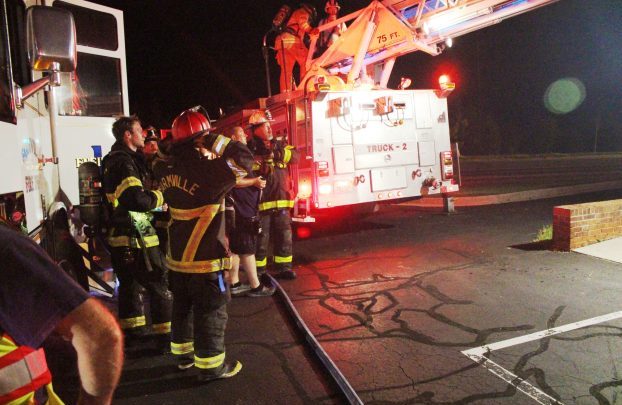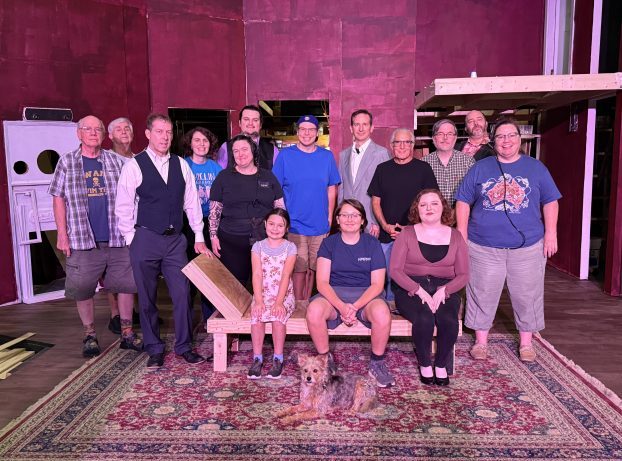Why I am so passionate about serving
Published 3:43 pm Thursday, June 17, 2021
|
Getting your Trinity Audio player ready...
|
Our church along with others support a group of aid organizations and churches in New Mexico and in El Paso, on the border with Mexico.
We send desperately needed supplies to help refugee children and their families. I asked Lynn Coburn who leads our group efforts to tell us why she is so passionately involved with this ministry when there are so many other equally good causes? Her letter can help us all understand why it is so important for us to provide desperately needed support for those in our local area and to be aware and willing to help in other parts of the world.
What follows is her answer.
Trending
Growing up in New Mexico, migration/immigration was part of my normal life.
When I was young, braceros from Mexico picked the cotton in the field across from my house. Braceros were temporary workers, “guest workers” who came seasonally from Mexico and then returned home. When I was eight our church sponsored a family of Dutch citizens who fled Indonesia when Japan took over the islands.
Later our church took in Cuban refugees. As an adult our church was involved with people from El Salvador and Guatemala, and we helped a Pakistani family who was tortured simply because they were Christians in a Muslim country.
I learned there are pressing reasons why people flee their homelands. Their first choice would be to stay where they grew up, had friends, knew the culture and language but things at home have become so unbearable they feel it necessary to flee. Often, they are running for their lives.
In 1991 as parents of elementary-school-aged children, my husband and I took our family to Guatemala and saw both the great beauty and the great poverty of that country. We were there during the revolution. We saw soldiers roaming the countryside and vendors along the roadways fleeing as soldiers approached their stalls. We visited an artist whose entire village had been massacred.
In southern Mexico we visited a family located in a camp of refugees from Guatemala. It was a temporary village. The walls of the houses were made from sticks lashed together and the roofs were made of corrugated tar paper. There was a latrine at one end of the dirt “street” and a spigot for water at the other end. We slept on a bed made of lashed together sticks and had a feed sack for a “mattress” and another one for a blanket. One little girl told my daughter that now they are in the camp, they felt safe.
Trending
Through these experiences I saw the humanness of the refugees. They are like me. They want to live peaceful, productive lives in safety, where they can love their children without worry about eminent danger.
The verses from Matthew 25:35 “I was hungry, and you gave me food, I was thirsty and you gave me drink, I was a stranger and you welcomed me” and Matthew 25:40 “Truly I say to you, as you did it to one of the least of my brethren you did it to me” are guiding forces for me.
I don’t know the story behind each person waiting at our border hoping to have a better, safer, happier life or to provide a better life for their children here in the United States. But I do know it was a dangerous journey to get there and they need help while they wait their turn to enter and be reunited with family members and/or sponsors who are in the United States. Most of the men have had their shoelaces and belts taken away from them. The women often arrive with no panties. Many have survived assaults and had their possessions stolen on the way.
Most of the people are from Guatemala, Honduras, Mexico, El Salvador, and Nicaragua and are trying to escape from war, violence, extreme poverty, and the effects of global warming. They are staying in shelters while they wait to get a sponsor, legal representation, and a date to meet with ICE authorities to know if they will be conditionally admitted to the United States. Many are families with children under the age of 14.
We are working with Dr. Eva Moya, a professor at the University of Texas and leader of the Dignity Mission in El Paso. Dr. Moya works with Catholic nuns in Juarez and is part of the greater organization of churches providing humanitarian help during this crisis. Dr. Moya collects donations in her garage and then once or twice a week fills her SUV and makes deliveries to agencies and shelters. Leaders from the coordinating organizations also come to her garage to pick up items—food, dignity kits, backpacks of school supplies, books, activities for children, stuffed animals and supplies for newborns. They are especially asking for: underwear, socks, flipflops, shoelaces, diapers, baby wipes, NIDO Fortificado whole milk powder and school supplies.
For more information on how you can contribute to this amazing mission, send an email to Lynn Coburn at BorderDignityMission@gmail.com. Mount Pleasant UMC in Louisa is working with Coburn to process and distribute donations and supplies.
REV. LARRY E. DAVIES can be reached at larrydavies@vaumc.org.






